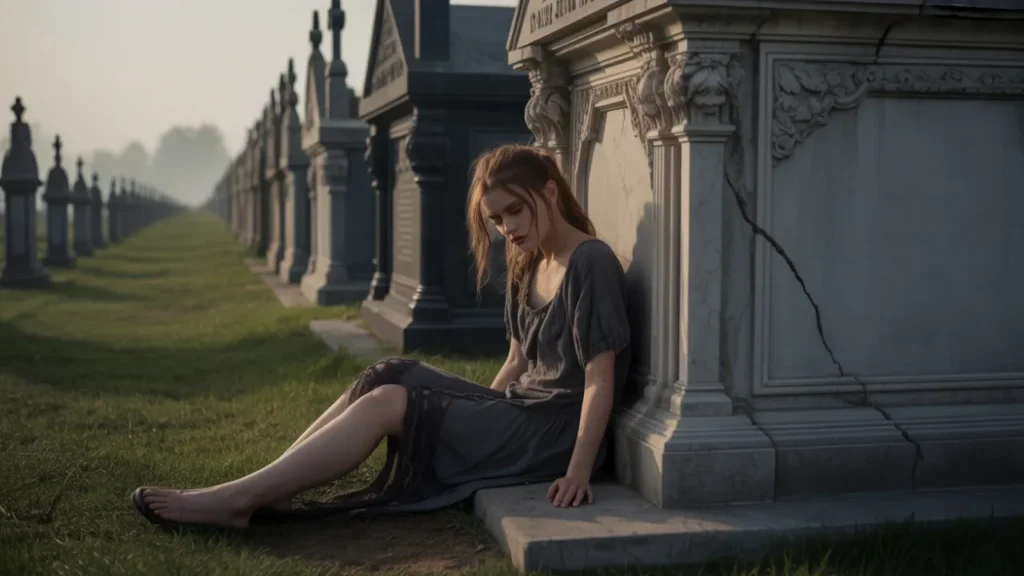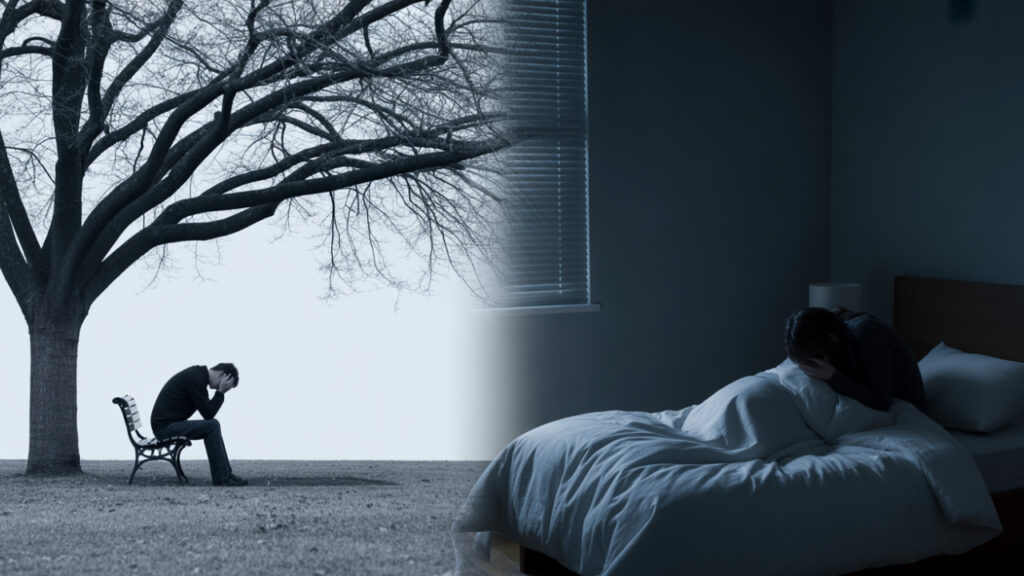Grief vs Depression Overlap Between Grief and Depression
Grief and depression both bring sadness, fatigue, and changes in mood. People may confuse the two because the symptoms often overlap. Psychology and psychiatry show clear differences that help patients and caregivers know when to seek help.
Grief is a normal response to death or loss, while depression is a mental health disease. Depression can occur without a clear loss, and it lasts longer. Therapy and support from a mental health professional can help distinguish between them.

What Defines Grief
Grief is a natural reaction to loss, often triggered by death, separation, or major life change. It involves sadness, guilt, and anger that come in waves. Fatigue, appetite changes, and insomnia can also occur.
Prolonged grief disorder is listed in the Diagnostic and Statistical Manual of Mental Disorders. It happens when pain lasts beyond a year and limits health, memory, and coping. Patients may show rumination and suicidal ideation when grief becomes overwhelming.
The Role of Emotions in Grief
Grief often includes guilt, anger, and sadness. These emotions may shift depending on memory and reminders of the loved one. Caregivers often see patients move between pain and small moments of peace.
Risk of Grief Turning into a Disorder
Most people adapt with time, but some develop prolonged grief disorder. The risk increases if the death was sudden or violent. Early therapy and involvement of a health professional help reduce long-term suffering.
What Defines Depression
Depression is a disease that affects mood, health, and daily function. Major depressive disorder involves long periods of sadness, fatigue, and hopelessness. Unlike grief, depression can occur without a specific event.
The diagnostic and statistical manual of mental disorders requires at least two weeks of major depressive episode symptoms. These include suicidal ideation, appetite changes, insomnia, guilt, and loss of interest. Psychiatry often prescribes medication such as antidepressant treatment to reduce symptoms.
Signs of Major Depressive Disorder
Patients with major depressive disorder often show fatigue, poor memory, and rumination. Appetite loss, insomnia, and reduced coping are common. Some experience anger and anxiety alongside deep sadness.
Risks Linked to Untreated Depression
Depression increases risk of suicide, substance use, and chronic disease. Suicidal ideation can be frequent and intense. Therapy with a mental health professional lowers risk and improves long-term health.
Key Differences Between Grief and Depression
Grief comes in waves and is linked to memories of the deceased. Depression is persistent and does not ease with time. Patients with grief still feel moments of joy, but patients with depression often cannot.
Psychology research shows grief often maintains connection with memory of a loved one. Depression, by contrast, blocks interest in life overall. Therapy helps identify whether pain comes from grief or a major depressive episode.
Physical and Mental Health Symptoms
Both grief and depression cause fatigue, appetite change, and insomnia. Grief, however, may improve with support from caregivers. Depression requires medical treatment and often antidepressant medication.
Role of Guilt and Suicidal Ideation
In grief, guilt often relates to the death, such as regret over words left unsaid. In depression, guilt expands to feelings of worthlessness. Suicidal ideation is more frequent in depression and requires urgent care.

Brain and Psychology Insights
Psychology shows grief activates areas linked to memory and attachment. Depression affects broader brain systems tied to mood and cognition. This explains why depression is classified as a disease while grief is considered a normal process.
Psychiatry uses imaging to study rumination and sadness. Both grief and depression show changes in brain function, but depression produces stronger disruption. Therapy works to retrain the brain and build healthier coping.
Role of Fatigue and Sleep Problems
Fatigue and insomnia appear in both grief and depression. In grief, sleep often improves as emotions settle. In depression, sleep disruption persists and may require antidepressant medication.
Appetite and Physical Health
Loss of appetite is common in grief and depression. Depression, however, may also lead to overeating. Caregivers and health professionals monitor patient nutrition as part of therapy and treatment.
Risk Factors for Grief and Depression
Both grief and depression have clear risks. Sudden death, lack of social support, and past anxiety increase risk of prolonged grief disorder. Family history, past major depressive episode, and substance use raise risk for depression.
Caregivers often serve as the first health professional to notice warning signs. Patients benefit from early therapy and proper diagnosis. Revival Mental Health offers therapy and psychiatry services in Orange County to help reduce these risks.
Caregiver Role in Coping
Caregivers play a vital role in supporting patients through grief and depression. They help patients manage mood, appetite, and fatigue. Health professionals guide caregivers in how to support coping without worsening rumination.
Patient Vulnerability and Disease Progression
Patients with ongoing anxiety or history of major depressive disorder are more likely to struggle. Early psychiatric assessment lowers long-term risk. Medication, therapy, and support reduce disease progression.
Treatment for Grief and Depression
Therapy helps both grief and depression by offering coping tools. Cognitive behavioral therapy, grief counseling, and psychiatry provide structure. Medication like antidepressants is used in major depressive disorder but not for normal grief.
Revival Mental Health provides therapy, psychiatry, and caregiver guidance. Our health professionals help patients process grief and treat depression. With proper care, patients reduce pain, improve mood, and strengthen mental health.
Role of Medication and Antidepressants
Medication may be used when depression is severe. Antidepressants reduce sadness, fatigue, and suicidal ideation. They are not prescribed for normal grief but may be given for prolonged grief disorder.
Importance of Therapy and Mental Health Professionals
Therapy teaches coping strategies for both grief and depression. Patients learn to manage anger, guilt, and rumination. A mental health professional ensures safe recovery while protecting overall health.

When to Seek Professional Help
If sadness lasts more than a year after a death, prolonged grief disorder may be present. If symptoms include suicidal ideation, risk of self-harm, or major depressive episode, immediate help is needed. Revival Mental Health in Orange County provides psychiatry and therapy for these conditions.
Caregivers should also seek help if patient fatigue, memory problems, or insomnia interfere with daily health. Early support reduces risk of disease progression. Proper treatment saves lives and improves long-term mental health.
FAQs
- What is the main difference between grief and depression? Grief is a normal reaction to loss, while depression is a disease. Depression persists longer, disrupts health, and may require medication.
- Can grief turn into depression? Yes, prolonged grief disorder can lead to depression. Patients may show persistent sadness, insomnia, and rumination beyond normal grief.
- Does depression always require antidepressant medication? Not always. Some patients improve with therapy alone, but severe major depressive disorder often requires antidepressants.
- How do caregivers support patients with grief or depression? Caregivers provide emotional support, monitor appetite, fatigue, and sleep, and help patients access a health professional. Therapy teaches them effective coping tools.





